There’s something special about a garden that mixes height, texture and form — whether that’s through the use of perennial flowers and grasses or the addition of small trees and shrubs. When you visit botanical and private gardens, what makes your favorite areas so special? Likely, it’s how the garden works with and against the traditional ideas we have of what a garden should be. Shrubs don’t just have to be living fences. Here are five ways that incorporating shrubs into your flowering landscape can elevate the experience for you and wildlife in every season.
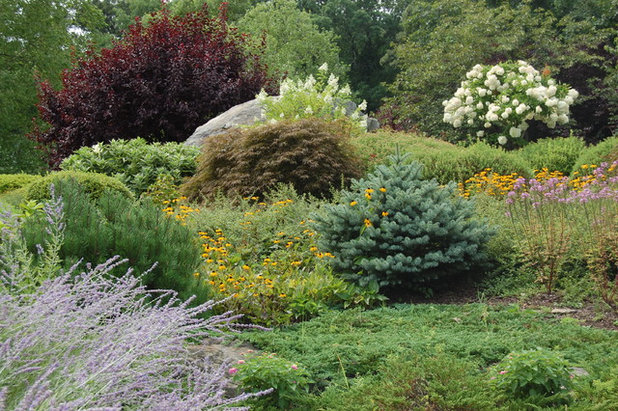
Mary-Liz Campbell Landscape Design
1. Shrubs add gravitas. Shrubs are anchors in a landscape. Most of the time we see them used in hedges, as borders or on corners. As effective as they can be in these situations, shrubs do so much more. In this image, notice how various shrubs both break up the flowers and help the eye transition from one view to the other. They also are stacked on one another to develop a tiered, layered effect as the eye shifts instinctively from the front to the back of the border.
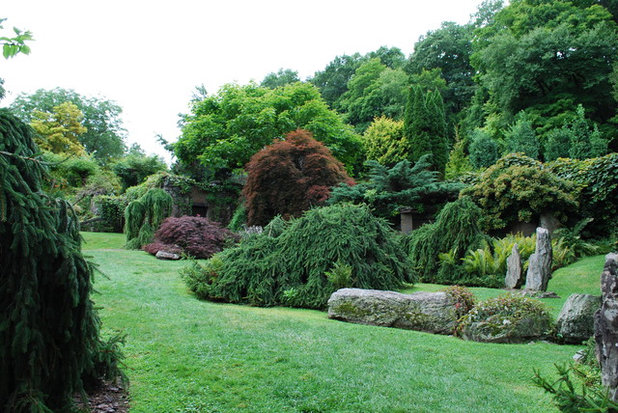
Jay Sifford Garden Design
There’s no reason you can’t have a garden where shrubs take center stage. Even though this garden is devoid of flowering perennials, you can see how the shrubs take the place of flowers by creating similar drifts of color and structure, in a way that’s both calming and surprising.
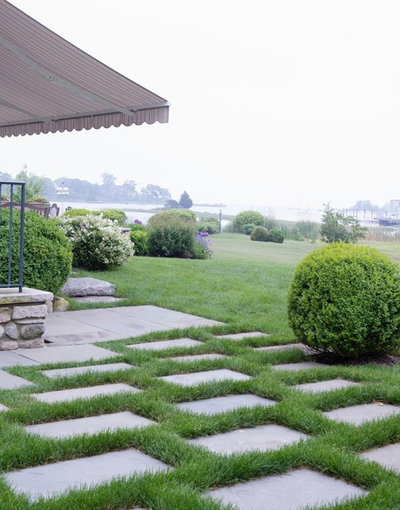
Sasco Farms Landscape Design
2. Shrubs add sightlines. Especially in a larger garden, shrubs can guide our vision and create waypoints to calculate the depth and structure of a garden. In this coastal garden, shrubs draw the eye into the landscape and down to the water.
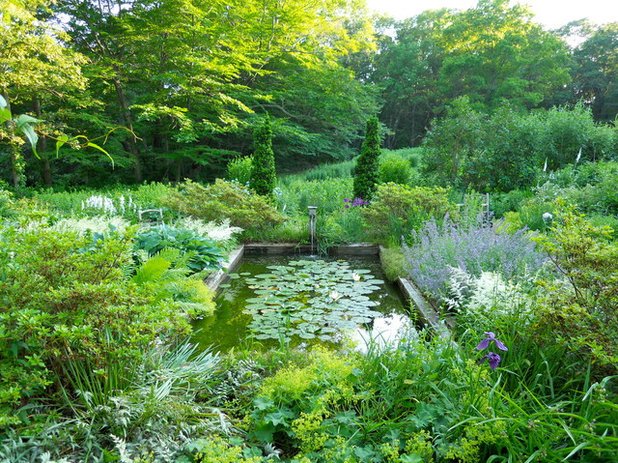
Andrew Grossman Landscape Design
Shrubs or small trees can bring structure to an otherwise relatively loose, informal design. By creating symmetry and playing off the linear form of this pool, as well as echoing the dark green shadows of the woods in the background, the simple inclusion of two specimens brings a bit more order to what at first may seem like visual disorder.
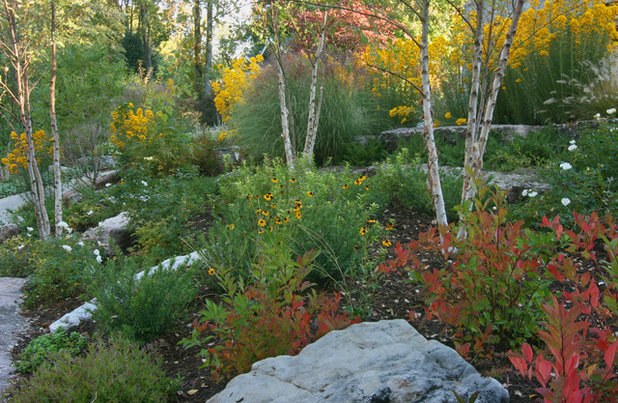
Merrifield Garden Center
3. Shrubs add texture and color when flowers fade. Lots of shrubs offer ornamental leaves with various colors and textures, which helps heighten the visual experience. In addition, fall color plays an important role when most of the blooms are long gone (unless you’ve got plenty of asters in the mix). Shrubs can bring one final punch of color to the growing season.
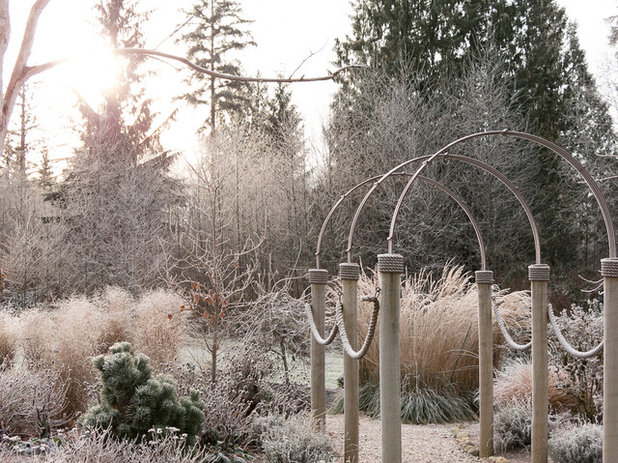
Le jardinet
4. Shrubs create winter interest. Letting your spent flowers and grasses stand until spring provides wildlife habitat, protects plants and gives you a stunning view. With the addition of shrubs, a deeper level of architectural intrigue occurs, especially when leaves have fallen off. The bones of deciduous shrubs and the green needles of conifers take on even more sculptural attributes, making a winter garden stand out.
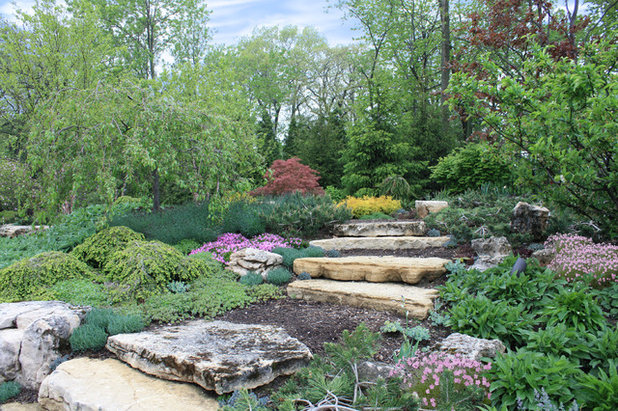
Rocco Fiore & Sons, Inc
5. Shrubs provide more diverse habitat. Put a shrub in the middle of a flower bed or border and watch the birds perch or shelter in the branches. Many spiders, bees and other insects will also use shrubs as places to feed (if the plants are native), shelter or overwinter. The diversity in structure and texture that we find appealing when we mix shrubs with perennial flowers and grasses is also appealing to wildlife, helping to support them in every season.
More: See more ways to enhance your landcape with shrubs





